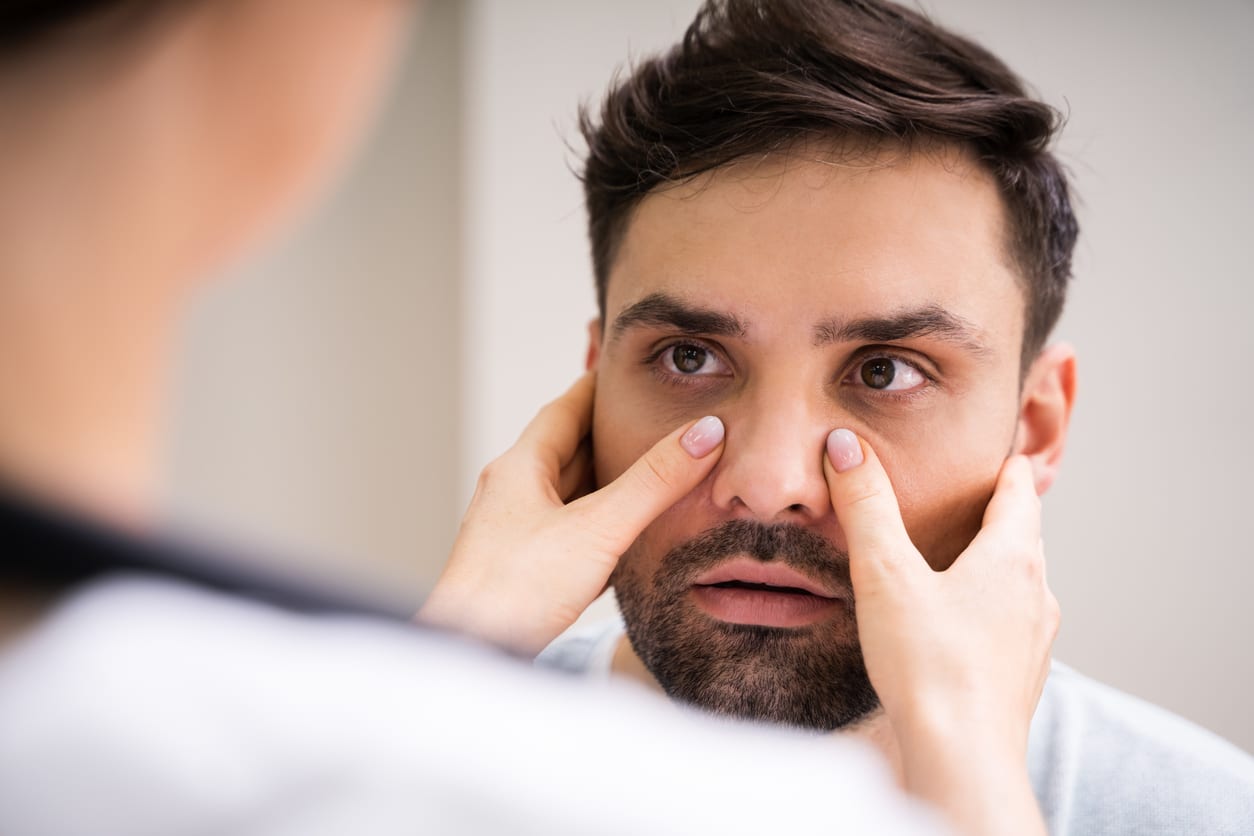Sinus problems are common, causing a stuffy nose and facial pressure, and figuring out whether they’re viral, bacterial or allergy-related isn’t always straightforward. Learning to tell them apart can help you make the right call when seeking treatment.
Your sinuses are air-filled cavities behind your cheeks, forehead and nose. When they become inflamed or blocked, mucus builds up and can’t drain properly, leading to congestion. This inflammation, called sinusitis, can be triggered by infections or allergic reactions.
Viral Sinus Infections

Viral infections are the most common cause of sinus issues. They often begin as a cold or upper respiratory infection and usually resolve on their own.
Signs your sinus issue may be viral:
- Nasal congestion and drainage that is usually clear or slightly cloudy
- Mild facial pressure or headache
- Low-grade fever or no fever at all
- Symptoms peak within two to three days and last seven to 10 days
- Sneezing, sore throat or cough may also be present
Viral sinus infections don’t respond to antibiotics. Instead, supportive care like rest, fluids, saline rinses, steam inhalation and over-the-counter decongestants can help relieve symptoms.
Bacterial Sinus Infections
Bacterial sinusitis can develop when a viral infection lingers, creating the perfect environment for bacteria to grow. It’s less common but typically more serious.
Signs your sinus issue may be bacterial:
- Symptoms lasting more than 10 days without improvement
- High fever, over 101°F
- Thick, yellow or green nasal discharge
- Severe facial pain or pressure, especially around the cheeks or eyes
- Symptoms that initially improve and then worsen again
Bacterial sinus infections may require antibiotics, especially if symptoms are moderate to severe or don’t resolve independently. Always consult a healthcare provider before starting antibiotics.
Allergy-Related Sinus Problems
Sinus inflammation caused by allergies, or allergic rhinitis, often mimics a mild sinus infection but has different triggers and treatment approaches.
Signs your sinus issue may be from allergies:
- Itchy eyes, nose or throat
- Sneezing fits
- Clear nasal discharge
- Nasal congestion without fever
- Symptoms that occur seasonally or around known allergens such as pollen, dust or pet dander
Allergy-related sinus problems respond best to antihistamines, nasal corticosteroid sprays and the avoidance of triggers. Long-term relief may require allergy testing or immunotherapy.
When to See a Doctor
If you’re unsure about the cause of your sinus symptoms or if they worsen despite home treatment, it’s time to consult a doctor. Medical attention is especially important if:
- You have symptoms lasting more than 10 days without relief
- Pain or swelling spreads to your eyes or forehead
- You develop a high fever or confusion
- You experience recurring sinus infections
Proper diagnosis can help avoid unnecessary antibiotics and ensure you’re getting the right care for your specific issue.
To learn more about the best ways to promote sinus health, contact Willamette ENT & Facial Plastic Surgery to schedule an appointment today.
“Everyone is nice and very efficient.”